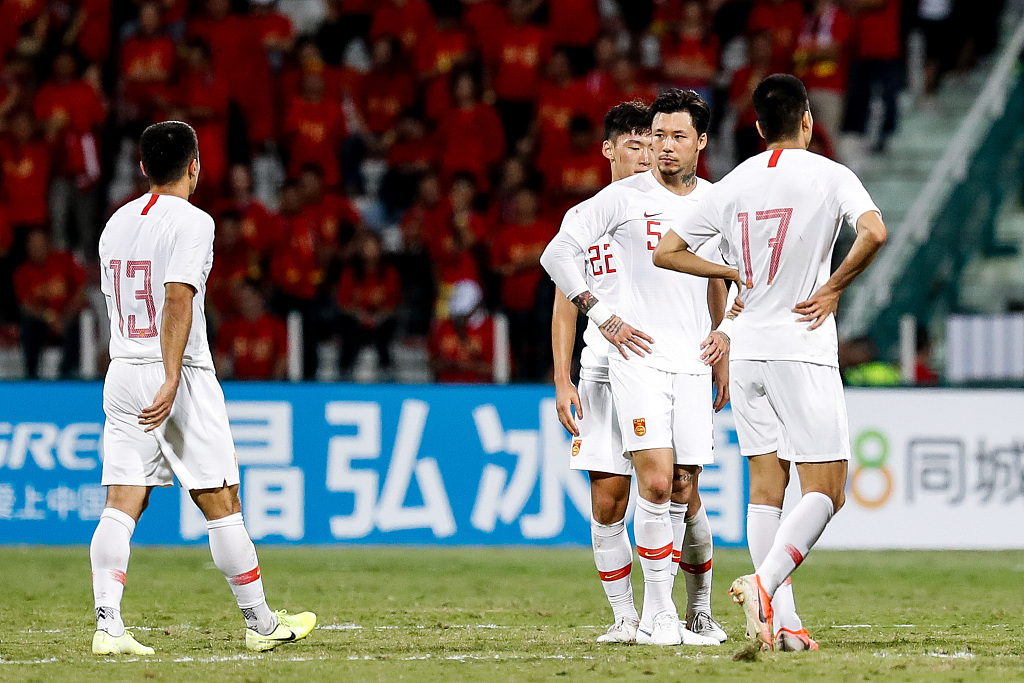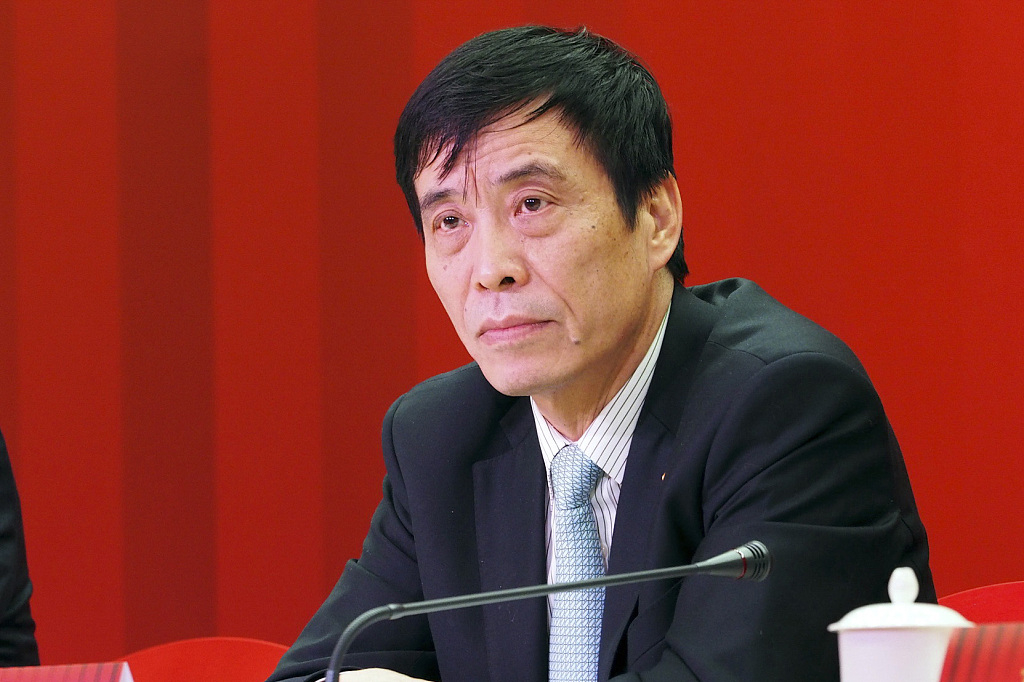The undisguised despondency hanging over Chinese football revealed itself again this year when Team Dragon first became the architect of their own downfall at the Asian Cup and then reached another low ebb during the 2022 World Cup qualifiers.
As the year ends without tangible progress, the Chinese Football Association (CFA) has set its sights on alleviating the daunting woes afflicting the most popular sport in China with a raft of drastic measures made public on Wednesday.
The most noticeable rejigging is the introduction of a salary cap of 10 million yuan (1.45 million U.S. dollars) before tax per year for domestic players in the new Chinese Super League (CSL) season which starts in February. Foreign players who put pen to paper on a contract in 2020 will also be affected by the salary cap which is set at three million euro (3.33 million U.S. dollars) after tax.

Chinese players appear frustrated after their World Cup qualifying defeat to Syria in Dubai, November 14, 2019.
Chinese players appear frustrated after their World Cup qualifying defeat to Syria in Dubai, November 14, 2019.
In an effort to further rein in spending spree, the CSL clubs would only be permitted to splashed out no more than 1.1 billion yuan (159 million U.S. dollars) during the whole season, with the caveat that their total salaries do not surpass 60 percent of their annual expenditure.
CFA chairman Chen Xuyuan has long bemoaned the reckless financial behaviors that are prevalent in China's top-flight. "Our clubs have splurged too much money and our professional football has not been run in a sustainable way," he said in a meeting on Wednesday before adding the CSL would be "in danger of collapse if we don't take timely action."
It won't be easy to strike a delicate balance between sustainability and allurement, but the CFA did attempt to mitigate the negative impacts of the financial restraint by relaxing the quota on foreign stars. According to the new regulations, the number of foreign players who can appear at any given time per game will be increased from three to four.

Chen Xuyuan, who was elected the Chinese Football Association chairman in August, has vowed to rein in irrational spending in Chinese football.
Chen Xuyuan, who was elected the Chinese Football Association chairman in August, has vowed to rein in irrational spending in Chinese football.
In addition, amid the widespread concerns that high-profile foreign arrivals are crowding out homegrown talent, the CFA has made the belated move by unveiling new professional U23 leagues in the top three tiers of domestic football in a bid to inject impetus into the nation's youth development projects.
Whether the latest string of reforms is able to pull the Chinese football out of the doldrums remains to be seen, but there shouldn't be too much doubt that a greater emphasis on rational spending and strategic planning might stand the test of time in the greater scheme of things.